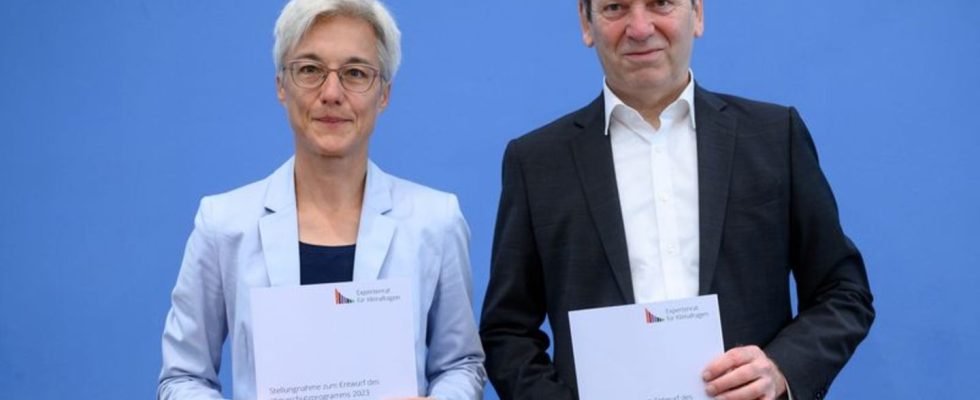climate crisis
Expert advice: Federal government too optimistic about climate protection
Hans-Martin Henning, Chair of the Expert Council on Climate Issues (ERK), and Brigitte Knopf, Deputy Chair of the Expert Council on Climate Issues, present the Expert Council’s statement on the 2023 climate protection program and the audit report for the building and transport sectors at the federal press conference. photo
© Bernd von Jutrczenka/dpa
Does the federal government overestimate its own climate protection measures? The Expert Council for Climate Issues assumes this – and once again does not give good marks.
According to the Climate Protection Act, German emissions of greenhouse gases should fall by at least 65 percent by 2030 compared to 1990. The federal government assumes that there will be a remaining gap between 2021 and 2030 of around 200 megatons of CO2 equivalents. The expert council doubts this prognosis. For better comparability, other greenhouse gases are converted into CO2 equivalents, based on their respective contribution to global warming compared to carbon dioxide.
Data situation “inconsistent”
Henning also criticized an “inconsistent data situation”. This would mean that no reliable prediction could be made about the overall impact of the climate protection program. That does not comply with the legal requirements. Nevertheless, a “significant contribution” to climate protection can be expected.
In particular, the areas of buildings and transport are badly off. The experts attest to the federal government’s lack of ambition here. Accordingly, a gap of 35 megatons of CO2 equivalents remains for the building sector by 2030, and between 117 and 191 megatons in the transport sector during this period. The uncertainty in traffic results from different information from the Ministries of Economy and Transport.
Here, too, the Council criticizes the data basis. “We suspect that the assumed greenhouse gas reduction in the building sector will be lower than calculated in the report,” explained Henning. Responsible for this is above all the expected, significantly changed design of the heating law. “In the transport sector, we see optimistic assumptions, for example with regard to the speed of implementation and financing of the measures and the overcoming of obstacles to implementation.”

